Mental disorders do not affect the physical condition of a person, but at the same time adversely affects the ability of an individual to build social relations.
As a result, the person suffering from the disorder is in forced isolation and can not live a full life.
Paranoia - what is this disease?
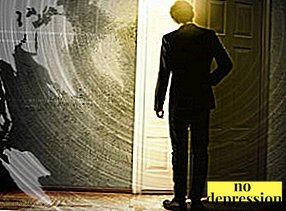
What does paranoia mean?
Paranoia - This is a mental disorder in which a person has delusions.
The state is associated with distrust and suspicion, the inability to correctly and logically interpret the actions of other people.
Very often people allow spelling mistakes paranoia. It is noteworthy that the disease is written through the "» ", while the person suffering from the disorder is called paranoid, and this definition is written through the" and ".
In the classical version, paranoia is viewed as the tendency of a person to see in random coincidences of circumstances the machinations of ill-wishers.
Paranoid - who is it?
What is the meaning of the word paranoid?
A paranoid person is a special type of personality, within which a person is usually reticent, secretive, distrustful, suspicious and devoid of a sense of humor.
Paranoid constantly suspect others in any insidious plot, conspiracy, or bad intent.
On the basis of paranoia in people suffering from this disorder is formed super valuable idea. And all the events taking place in the outside world are regarded as confirmation of this idea.
And any facts that refute it are simply ignored or given an interpretation that will satisfy the convictions of a sick person.
The reasons

Unfortunately at the moment the reasons for the development of paranoia remain a mystery to scientists, exactly as the prerequisites and aggravating factors.
But as a result of studying the anamnesis of people with a disorder, it became clear that most often the pathology develops in heirs, whose parents suffered from schizophrenia or forms of delusions.
Those. the likelihood of being upset inheritedis big enough.
Paranoia can be the answer of the psyche to severe stress experienced in childhood (threats, the use of violence, moral repression, etc.).
The disorder develops in the case of a pronounced indifference of the parents towards the child, neglect of the baby or unwarranted aggression.
Another reason for the development of paranoia is degenerative processes in the brain against the background of age-related changes in the elderly.
Reception psychodog can provoke the coming type of paranoia.
Kinds
The classification adopted by scientists includes several types of paranoia:
- Alcoholic. Crazy psychosis appears as a result of a neglected form of alcoholism. Most often, the patient suffers from delusions of jealousy or persecution.
- Paranoia struggle. This term is somewhat outdated, but is still used in medicine. He describes a state in which a person with frustration is concentrated on protecting his “disadvantaged rights”, actively advocating for the restoration of justice. At the same time, the person is active and fanatical.
- Paranoia of desire. Brad with love or erotic overtones.
- Involutionary. Systematic nonsense, from the side resembling a chain of complementary and arising from each other events / observations / beliefs.
A sick person skillfully uses any factual information, interpreting it in such a way that it fits into the concept of an existing legend.
- Hypochondriacal. Systematic delirium, starting with delusional interpretations and unfolding (amplifying) in time.
- Sharp. Delirium, accompanied by hallucinations and stuporous symptoms.
- Sharp expansive. With this kind of disorder, the ideas of one's own greatness, exclusivity and power dominate.
- Persecutory. The conviction of the patient that he was persecuted.
- Sensitive. A person suffering from a disorder becomes very vulnerable, sensitive and sensitive, which forms the basis for conflicts.
- Paranoia of conscience. Tendency to self-incrimination and suspicion of oneself in something bad.
- Suggressive. The person falls into a state close to hypnotic, when interacting with a pleasant / desired object.
- Sutyazhnaya. Paranoia of struggle, in which a person is prone to disputes and defend their interests at any cost.
- Chronic. Develops in mature and old age (from 45 to 60 years).


Symptoms and signs
The main sign of paranoia is a person’s obsession with any idea that becomes especially significant for the patient.
The state is accompanied by egoism, unjustifiably exaggerated self-esteem, complacency.
Paranoid ignores the positive aspects of life, but at the same time all their attention is directed to the sources of negative emotions, especially if they are connected with the sphere of interpersonal relations.
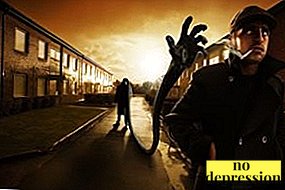
A person suffering from paranoia does not consider the interlocutor as a person.
He gives him an estimate based on how his opponent (the paranoid) relates to him.
An individual with a disorder cannot adequately assess their skills and abilities, overestimate them and overstate their own merits.
The first "bells" of paranoia - this is low mental and physical activity, passive aggression, negative attitude towards others without the presence of objective reasons, the person's perception of the world changes (both in terms of emotions and in terms of the work of the senses).
When the disorder progresses, symptoms become more "expressive":
- auditory and visual hallucinations;
- delusions and obsessions;
- decrease in mental activity;
- inability to critical self assessment;
- confidence in self-worth and superiority of others;
- touchiness;
- jealousy;
- suspicion;
- tendency to look around hidden motives.
How is it manifested in men and women?
Most often men suffer from paranoia. But there are no fundamental differences between male and female disorders.
The course of the disease depends on the type of disorder, its form and degree. Human behavior is changing gradually. It becomes difficult for him to establish contacts with others.
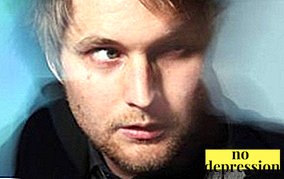
Conflict situations happen more often, and the patient becomes more and more closed.
is he trying to "catch" the interlocutor on something, catch and declassify it, clinging to individual words and phrases taken out of context.
In this case, self-esteem and self-esteem of the patient grow. A person is confident in his own importance and the indisputability of his authority. Other people in his eyes seem unworthy.
As a result, a person is not able to engage in dialogue, listen to someone else's point of view and agree with people. Any objections provoke aggression.
An individual suffering from paranoia is not capable of evaluating other people's actions in a positive manner, he cannot praise another person or note his merits.
Diagnostics
Diagnose a disorder can only doctor, having previously organized a survey and observation of the patient.
Paranoids do not trust doctors, and avoid cooperation with them, which significantly complicates the diagnosis.
And if the symptoms are not intense enough, the doctor may not determine the presence of the disorder, in view of the consistency and validity of the super-meaningful ideas of the patient.
How to fight?
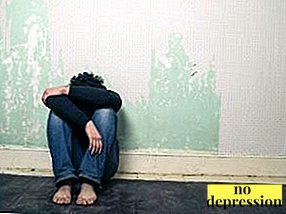
Is paranoia treated?
The method of treatment in each case will be individual, because the doctor in the appointment comprehensive measures relies not only on the current state, but also on the root cause of the disease.
Treatment paranoia implies two complementary directions:
- taking medicines;
- psychotherapy.
How to treat?
What pills and medicines to drink? Prescription drugs - an integral part of corrective measures in the treatment of paranoia. The doctor may prescribe to the patient:
- antidepressants;
- sedatives;
- tranquilizers;
- antipsychotics;
- antipsychotic drugs.
The most popular in the group of neuroleptics are "Propazin", "Aminazin", "Rispolept" and "Teasercin".
Patients with an increased level of anxiety may be assigned sedatives and anticonvulsants.
Is it possible to get rid of yourself at home?

Self-medication - ineffective measure of correction of the disorder.
Paranoid sufferers are unable to soberly assess the situation and recognize the existence of a problem due to inadequate self-esteem.
Only a specialist can help paranoid “Return to objective reality”.
How to cope with a fit?
Only antipsychotics with an antibredeffect can block an attack of paranoia. Psychotherapy is only effective in long term.
And attempts to persuade or self-suggestion will fail because of the patient’s inclination to see malicious intent in actions and words surrounding them.
How to deal with paranoid?
How to live with a paranoid? Simple rules will help maintain relationships and prevent aggravation of frustration in a loved one with paranoia.
- Ask for help. It is not necessary to grab a person and take him to the doctor if he does not recognize the fact of the problem. You can first visit the doctor alone to get advice and coordinate actions.
- Do not indulge the whims of the patient. You should not admit guilt, if in fact you are not guilty. Such a “noble sacrifice” will only prove the paranoiac’s correctness and strengthen the position of the patient, aggravating the situation.
- Do not make the diagnosis yourself. You should not make a diagnosis "by eye" and engage in treatment at home. If a person is really paranoid, he just needs qualified help.
- Do not enter into destructive games. Paranoids literally provoke others to destructive interaction. But participating in such games you can get at the output only conflicts and rapidly progressive disorder. Paranoid will still not appreciate your efforts and experiences. And his dismissive attitude in the future will prevent preserving or restoring the relationship.
- Beware of conflicts. Even if you really want to succumb to temptation and rudely respond to a loved one, you absolutely should not do this. In terms of conflict, the paranoid "shut up for anyone". Moreover, there is no rational grain in his words and behavior due to illness, but unpleasant words still hurt you.
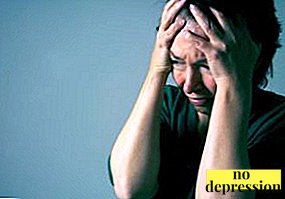
How to stop being him?
What if you are paranoid? If a person suspects to have paranoia, most likely he is healthy. Indeed, within the framework of the disorder, a person cannot even admit that he has problems. Perhaps the reason for the strange state of suspiciousness or anxiety.
But in any case it is worth to consult a doctor to correct the state of anxiety, as well as to exclude the likelihood of paranoia in the initial stage.
A paranoid patient is not to blame for becoming a “carrier” of the disorder. You should not condemn, reproach or indicate to the patient his problem in rough form.
It is better to follow the recommendations of the doctor to organize treatment and minimize the risks associated with the development of the disease.
Treatment of paranoia at home and in hospital:



